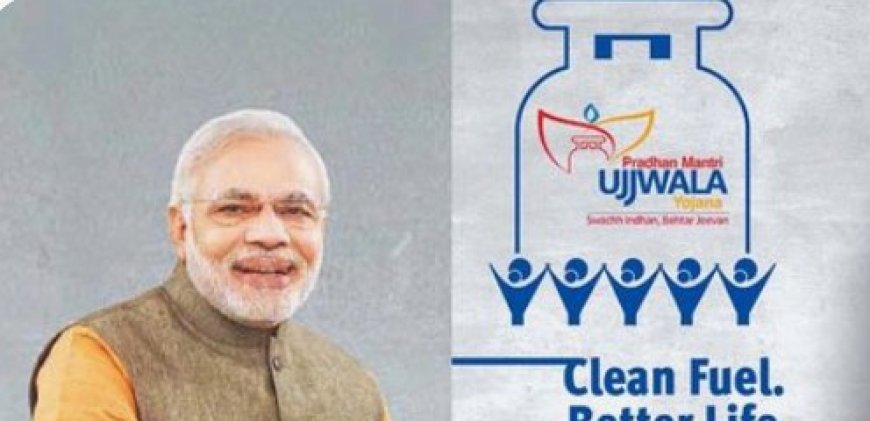Empowering Millions: Top 10 Facts About Pradhan Mantri Ujjwala Yojana (PMUY)
Unveiling the transformative impact of India's game-changing clean cooking fuel scheme for women.

Pradhan Mantri Ujjwala Yojana (PMUY) Top 10 Facts
The Government of India started the ground-breaking Pradhan Mantri Ujjwala Yojana (PMUY) in 2016 with the goal of empowering women from below-the-poverty-line (BPL) families by giving them free LPG connections. This innovative program has had a profound effect on India's socioeconomic environment in addition to changing the lives of millions of women. Let's examine the top ten details of this amazing project:
1. Strengthening Gender Equality and Empowering Women:
The empowerment of women is at the core of PMUY. The programme has freed women from the drudgery and health risks associated with using firewood and dung cakes for traditional cooking, by giving them access to clean and inexpensive cooking fuel. Along with enhancing their health and well-being, this has opened up new avenues for social interaction and revenue generating.
2. Taking Out Health Risks and Encouraging Environmental Preservation:
The use of LPG in place of conventional cooking fuels has significantly reduced indoor air pollution, a serious health issue that disproportionately affects women and children. As a result, respiratory infections have decreased, especially in women and children, enhancing their general well-being and standard of living. Additionally, by lowering greenhouse gas emissions, the move to LPG has helped to create a cleaner atmosphere.
3. Poverty Alleviation and Socio-Economic Upliftment:
PMUY has been essential to the improvement of socioeconomic conditions, especially in rural regions. The program has helped women save time and energy by giving them access to clean cooking fuel, which they can now use to fund activities that generate revenue. Higher household incomes, higher living standards, and a slow but steady reduction in poverty are the results of this.
4. Achieving Empowering Communities and Holistic Development:
PMUY has an effect that goes beyond the confines of a single home; it promotes comprehensive community development. The construction of LPG distribution facilities has increased economic activity in rural regions and given rise to job possibilities, especially for women. The program has also raised community understanding of environmental preservation, cleanliness, and health.
5. Unprecedented Magnitude and Outstanding Achievement:
With the distribution of over 10 crore LPG connections to qualified women throughout India, PMUY has seen unparalleled success. With this outstanding accomplishment, it has become the largest LPG distribution program in the world, demonstrating India's dedication to social welfare and women's empowerment.
6. Resolving Energy Insecurity and Guaranteeing All-Accessibility:
Energy poverty in India has been successfully addressed by the program, especially in rural and underprivileged regions. PMUY has guaranteed that women have the resources to make wholesome meals for their families by giving them access to clean and reasonably priced cooking fuel, improving the general health and wellbeing of children.
7. Fostering Digital Literacy and Financial Inclusion:
In order to encourage financial inclusion among BPL households, PMUY has proven crucial. Women beneficiaries of the system have found it easier to obtain bank accounts, which has allowed them to receive subsidies and make digital payments. This has improved their financial services accessibility and raised their level of digital literacy.
8. Honoring and Celebrating the Contributions of Women:
PMUY has proven to be a potent forum for honouring and commemorating the achievements made by women in Indian society. The program recognizes the critical role that women play in household management, family well-being, and community development by providing them with access to clean cooking fuel.
9. A Framework for Social Change and Sustainable Development:
PMUY has become a role model for social change and sustainable development, not just in India but in other developing countries as well. The program's accomplishments demonstrate the transformative potential of focused interventions in reducing gender inequality, improving socioeconomic well-being, and tackling energy poverty.
10. An Evidence of India's Devotion to Inclusive Growth:
An example of India's steadfast commitment to inclusive development and women's empowerment is the Pradhan Mantri Ujjwala Yojana. The project is a really transformational effort due to its amazing influence on the lives of millions of women and its contribution to the socio-economic prosperity of India.










































































































































































































